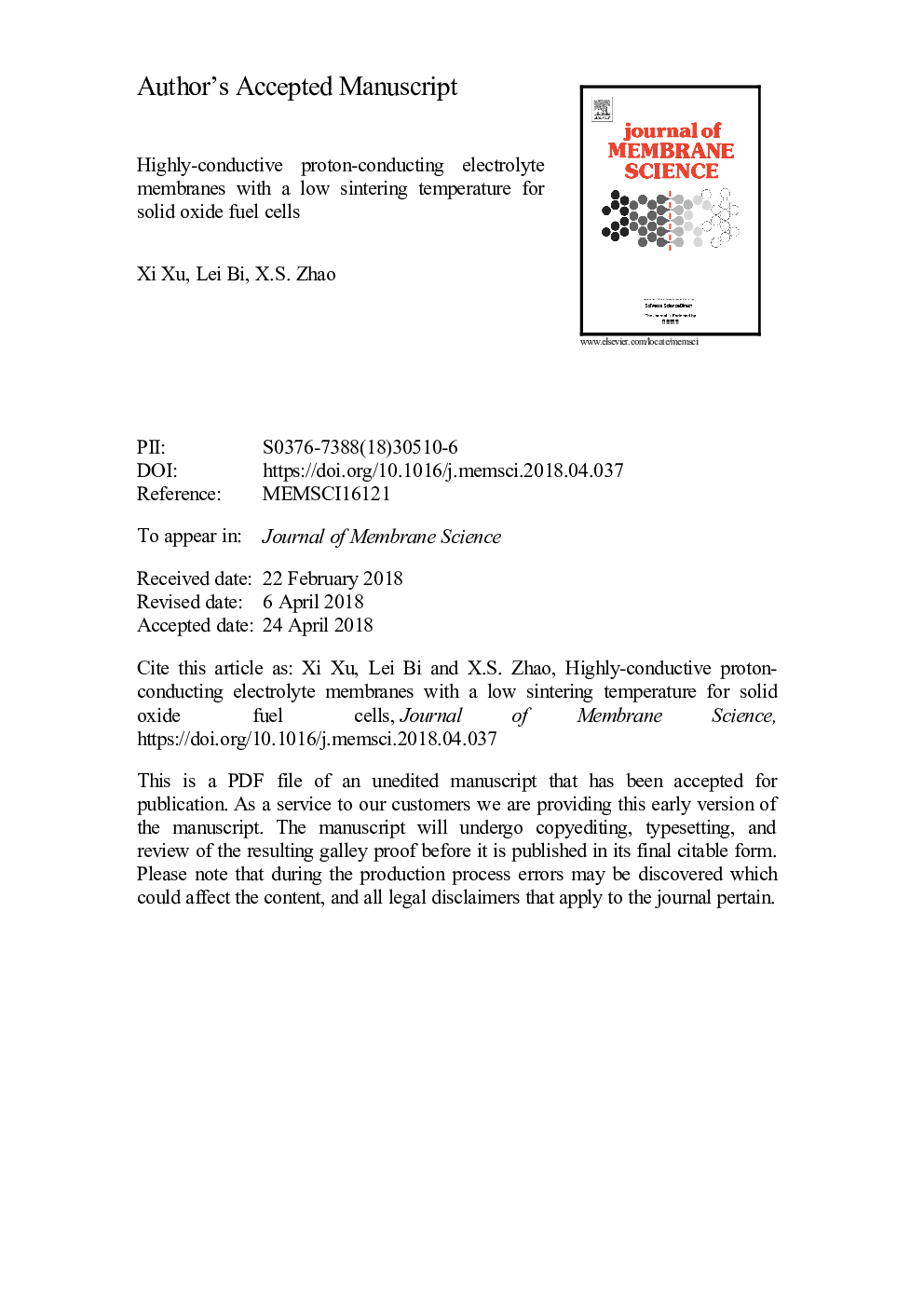| کد مقاله | کد نشریه | سال انتشار | مقاله انگلیسی | نسخه تمام متن |
|---|---|---|---|---|
| 7019822 | 1455941 | 2018 | 34 صفحه PDF | دانلود رایگان |
عنوان انگلیسی مقاله ISI
Highly-conductive proton-conducting electrolyte membranes with a low sintering temperature for solid oxide fuel cells
ترجمه فارسی عنوان
غشاء الکترولیت پروتئینی بسیار رسانا با دمای کم پخت برای سلول های سوخت جامد اکسید
دانلود مقاله + سفارش ترجمه
دانلود مقاله ISI انگلیسی
رایگان برای ایرانیان
کلمات کلیدی
موضوعات مرتبط
مهندسی و علوم پایه
مهندسی شیمی
تصفیه و جداسازی
چکیده انگلیسی
The microwave sintering strategy was for the first time adopted to prepare proton-conducting electrolyte membranes for solid oxide fuel cells. The preparation of a dense proton-conducting BaCe0.7Zr0.1Y0.2O3-δ (BCZY) electrolyte membrane can be achieved at 1200â¯Â°C with the microwave sintering method. In sharp contrast, a BCZY sample prepared at 1200â¯Â°C using the conventional thermal sintering method was found to be porous. In comparison with a dense BCZY sample prepared at 1400â¯Â°C using the conventional sintering method, the microwave-sintered BCZY electrolyte showed an improved proton conductivity, which is beneficial for fuel cell applications. Experimental results showed that the microwave sintering method enabled a homogenous elemental distribution and a suppression of barium evaporation, leading to the conductivity improvement in both bulk and grain boundaries. With the microwave sintered BCZY film as the electrolyte, a proton-conducting solid oxide fuel cell delivered a maximum power density of 838â¯mWâ¯cmâ2 at 700â¯Â°C with an electrolyte film conductivity as high as 1.4â¯Ãâ¯10â2 Sâ¯cmâ1. This study suggests that the microwave sintering method is a promising strategy to prepare electrolyte membranes at a relatively low temperature with high conductivity, which could advance the development of proton-conducting solid oxide fuel cells.
ناشر
Database: Elsevier - ScienceDirect (ساینس دایرکت)
Journal: Journal of Membrane Science - Volume 558, 15 July 2018, Pages 17-25
Journal: Journal of Membrane Science - Volume 558, 15 July 2018, Pages 17-25
نویسندگان
Xi Xu, Lei Bi, X.S. Zhao,
